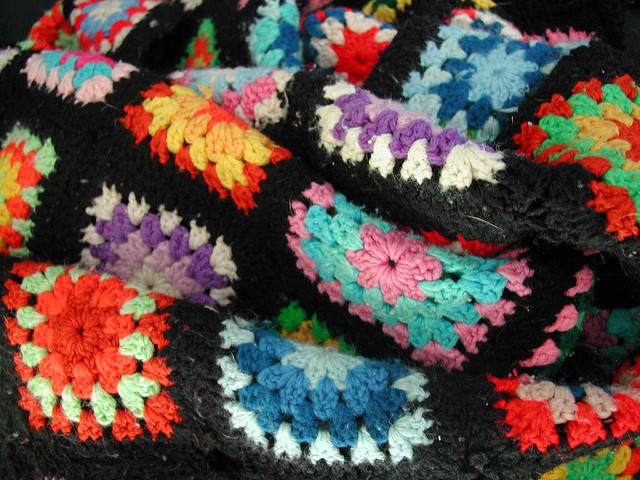
The Power of Comfort
We believe in the power of comfort.
Our comfort zones have well defined boundaries. We have carefully established which foods make us comfortable and the best places to eat them.
It is almost as if we believe our society exists to make us feel comfortable. We expect our possessions to give us comfort, from our favorite chair to our cars to our phones.
Discomfort stops us in our tracks.
We even say, when we disagree or dislike something, we are not comfortable with it.
Comfort has become one of the most basic characteristics defining our country. When we visit other parts of the world, we expect to be made as comfortable as we are at home.
Comfort is a powerful, driving force in our lives. We expect to be comfortable at home, comfortable at work, comfortable with our friends. If we attend church we want it to be one which makes us feel comfortable. We look for comfort in what we buy and in every other aspect of our lives.
Many of us carry that same expectation of comfort into our approach to spiritual life.
We think of spiritual life as reliable, supportive, and comfortable. Spiritual life can be a refuge for us in times of crisis. When we are distressed or discouraged, we turn to spiritual life to comfort us and make us feel better.
It is easy for us to see spiritual life as a familiar quilt we snuggle under when times are tough. When we struggle with something which is larger than we are we turn to spiritual life for comfort. We even talk and sing about good tidings of comfort and joy.
There are times when spiritual life comforts us, and other times when it makes us uncomfortable.
The Comfort of Spiritual Life
We struggle with life’s obstacles and challenges and we expect spiritual life to comfort us. They may be difficult situations in school or at work, or more personal hurdles. We may not be all we hope to be, or the people we intend to become. It may be a struggle to learn or grow, financial problems, or the expectations of other people.
When we feel we discouraged or disheartened we seek comfort, often from spiritual life. We may pray or meditate or practice another spiritual discipline. There may be comfort in the guidance of someone we trust or the activity of helping someone else.
We draw comfort from spiritual life, but that is not the whole story.
There are times when we feel less comfortable because of spiritual life. We may be faced with a situation we are convinced is not fair. Spiritual life may draw us into awareness of suffering around us. It may be, because of spiritual life, we are working hard to discern what we can, or need to, do.
We do not want the discomfort which comes from spiritual life. It is the warm quilt of spiritual life we seek, not the rough prickling of our consciences.
There are times when it gets even worse than spiritual life being uncomfortable.
We may have grown accustomed to the power of comfort from spiritual life. We reach for comfort again and are surprised to realize we cannot find it. Where is the quilt which comforted us? Why has spiritual life seemingly disappeared?
Spiritual life can confound and ignore our expectations. The comfort we thought was a reliable part of spiritual life is beyond our reach. It seems like spiritual life has led us into a place of discomfort. This is not what we expected.
Comforting the Afflicted and Afflicting the Comfortable
Over a hundred years ago journalist Finley Peter Dunne described the role of a newspaper. He said, in part, it was comforting the afflicted and afflicting the comfortable. His witty insight also describes my experience of spiritual life.
We act as though we believe spiritual life is intended to provide our safety and comfort. While we can receive deep, powerful comfort through spiritual life, it is only part of the truth.
There are times when spiritual life afflicts us in our comfort.
I struggle with the extreme comfort we seem to expect is our right. Other people in the world struggle to survive and find our level of comfort unimaginable. The difference is not because they are less worthy of comfort or less deserving. It is not that they would not appreciate the comforts we enjoy.
In fact, some of their afflictions are part of the price paid to purchase our comfort. The imbalance and injustice between us afflicts me.
It is so easy for us in our culture to separate spiritual life from economic life. We have already constructed a wall around our comfort to protect us from the affliction of others.
It is spiritual life which reminds me, again and again, about the needs of others. What gives us the right to be so exceedingly comfortable when they are so exceedingly afflicted?
The disparity between us, when I can look into their eyes on my computer, takes away my comfort.
Part of the power of comfort is that it shows us how much our comfort really costs.
Comfort and Joy
Spiritual life demonstrates the power of comfort by bringing joy and comfort together.
We cannot sort spiritual life into neat categories or separate its component parts. The comfort and afflicting and joy of spiritual life are mixed together into its whole.
Finding the balance and justice we seek is part of growing in spiritual life. We are afflicted to learn and to act in ways which help make things right. As we listen and follow the direction of spiritual life, comfort and joy grow in us.
Spiritual life is a living, growing relationship which is not complete, not finished. As long as we are breathing, spiritual life comforts and afflicts us.
When does spiritual life comfort you? When does it afflict you?
Where is the power of comfort for you this week?
[Image by perempuan]
Greg Richardson is a spiritual life mentor and leadership coach in Southern California. He is a recovering attorney and university professor, and a lay Oblate with New Camaldoli Hermitage near Big Sur, California. Greg’s website is StrategicMonk.com, and his email address is [email protected].












